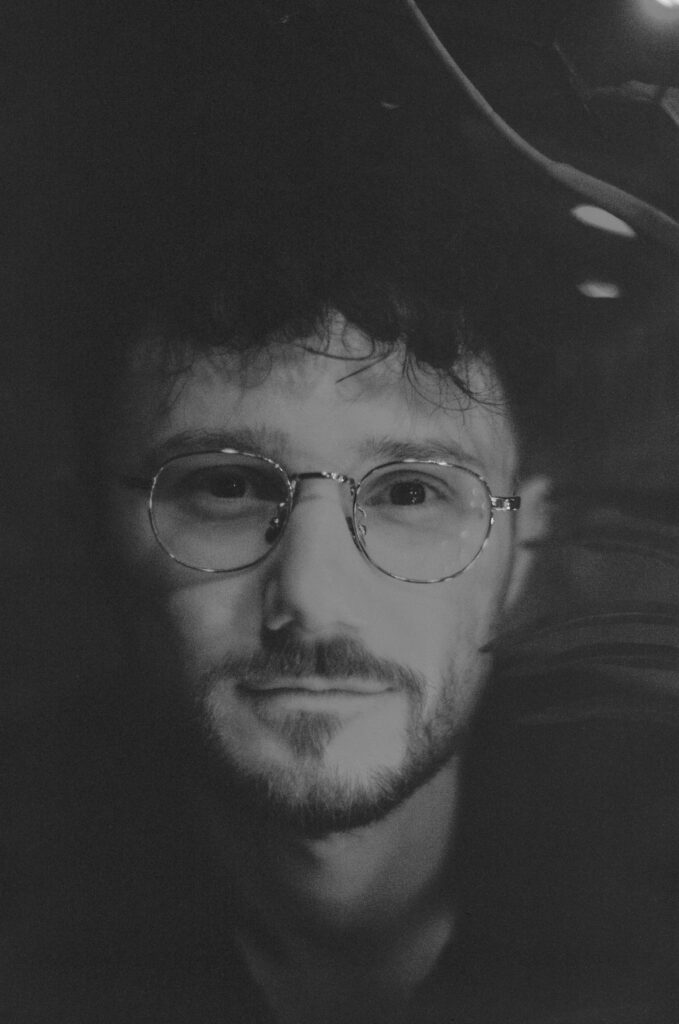William Crosby
William Crosby
PhD Student
(2023 - Current)
William Crosby is a British/Greek-Cypriot artist, musician, pedagogue, and agitator based in Cambridge,
UK.
His practice draws from ecological studies, sound art, and radical pedagogies, working with field recordings, text scores, improvisation, writing, and communal sound-making to ask how sound can build knowledge with our more-than-human contexts, and how this knowledge can develop communal pedagogical tools fit for our age of climate crises. William is a member of MUD Collective, a sedimentology-sound-art research group, collaborating across Iraq, India, France, and the UK. Together, they are exploring thinking with, through, and about mud, in consideration of shifting ideas around human/more-than-human, organic/inorganic, intra-actions. He is also a member of artist/researcher duo, (CWxWC), with Dr Cecilia Wee, who research the hidden politics of field recording.
Additionally, William lectures at Anglia Ruskin University, Cambridge, in sound/music studies, media & communications, and fine art. He is the Anti-Casualisation Officer for ARU UCU, and is the PhD Representative for the LCC UCU.

PhD
sounding kinships: towards more-than-human pedagogies
Sound’s pedagogical potential is under-explored; it is under-theorised and under-practiced within the mixed context of education and arts-based research. This research seeks to draw new knowledge from this gap, it aims to contribute discourse and methodological insight into the nascent field of “sonic pedagogy” (Voegelin, 2014), and aspires toward an embodied, multi-sensory, and plural knowledge-making research practice.
This work establishes experimental methods in conversation with kinship studies, a mode of enquiry that contains within it a profound engagement with our earth, the environment, and the possibility of radically new and complex relationships. Building on kinship studies (Haraway, 1988; van Dooren, 2022), ecologically-engaged sound arts practice (Oliveros, 2005; Wright, 2022), and radical pedagogies (hooks, 1994; Jickling, 2018), this research will use field recording, writing, listening, and communal workshopping (testing, documenting, and reflecting upon pedagogical interventions) as methods of enquiry, and will devise interdisciplinary communal resources (toolkits, example curricula, publications) for pedagogues, students, and artists.
In exploring these new methods, this project seeks to understand the role sound can play in encountering and sensing our ecological contexts (from flora and fauna, to mud, soil, and sediment), to enrich the process of teaching and learning. As climate emergencies amplify political and ecological entanglements, this research will produce original methods, tools, resources, and practices, expanding discourses from sound arts studies to fields including geography, ecology, and anthropology, as well as inform broader policy, curricula, and action.
If being together is to acknowledge the obligatory and strange entanglements between ourselves and diverse others, then this work asks, how do we do things together with sound, in the age of climate crisis?
Supervisors
Website
Artist website: www.crosbywilliam.com
Research website: www.soundingkinships.com
MUD Collective website: www.mudcollective.org
Social Media
Artist Instagram handle: @crosby.a.william
Everything else Instagram handle: @crosbywill
MUD Collective handle: @mud_collective
